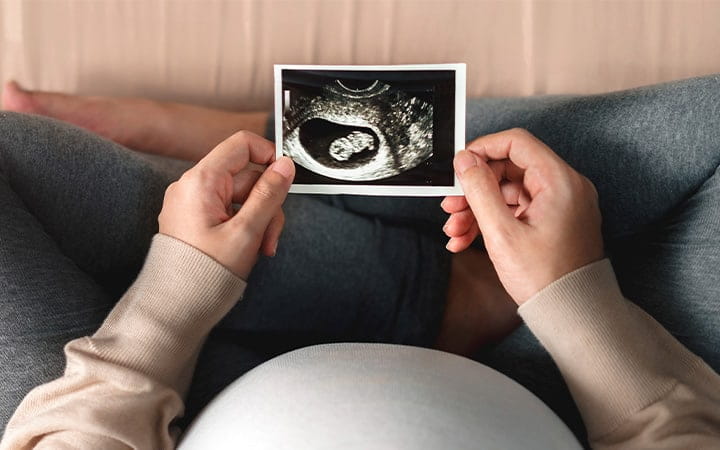Can I Drink Coffee Before an Ultrasound? Myths Busted!
It is advisable to avoid coffee before an ultrasound as it may affect the results. Confirm specific instructions with your healthcare provider.
Ultrasounds are critical diagnostic tools that provide valuable insights into the body’s internal structures. Whether you’re preparing for a routine check-up or a more detailed examination, how you prepare can significantly impact the quality of the imaging. One common guideline given by medical professionals is to avoid consuming certain substances, such as caffeine, which can be found in coffee.
The reason behind this is that caffeine can alter blood flow and other bodily functions, potentially obscuring the clarity of the ultrasound images. For accurate results, patients are often asked to abstain from food and drink that might interfere with the process. Always reach out to your doctor or technician prior to your appointment to get personalized advice regarding dietary restrictions and to ensure you’re ready for your ultrasound.
Credit: www.businessinsider.com
Coffee And Ultrasound: Truth Or Fiction?
Before an ultrasound, it’s vital to follow pre-test guidelines. Drinking coffee might not be recommended. This is due to caffeine in coffee. Caffeine can cause the stomach and intestines to become active. Active organs can hinder clear ultrasound images. Hospitals often suggest avoiding caffeine 24 hours before an ultrasound.
It’s a common belief that coffee impacts imaging results. Caffeine’s effect on the body can simulate stress responses. This mimics symptoms doctors try to observe. So, it might lead to misinterpretation of the ultrasound. Patients are encouraged to drink water instead for clearer images.
| Caffeinated Drink | Impact on Ultrasound |
|---|---|
| Coffee | May blur imaging |
| Tea | Could trigger organs |
| Energy drinks | Potential misreading |
Why Preparation For Ultrasound Matters
Preparing for an ultrasound is key to accurate diagnostics. Certain substances can distort the clarity of ultrasound images. Coffee and other caffeinated beverages might create unclear images by causing organs to behave differently. This could lead to improper readings and potentially misguide treatments. Clear images are crucial for doctors to make correct diagnoses. Before an ultrasound, following specific instructions ensures the best results. It’s essential to ask your healthcare provider about drinking coffee or other liquids before your appointment.
Caffeine’s Role In Diagnostic Imaging
Caffeine stimulates the body, increasing heart rate and blood pressure. This stimulation can affect the clarity of ultrasound images. Medical professionals often advise patients to avoid caffeine before an ultrasound. Coffee, tea, and certain sodas contain caffeine, which could cause the organs to appear differently under ultrasound due to increased activity.
The quality of diagnostic images is crucial for accurate assessments. Therefore, patients should heed instructions regarding caffeine consumption prior to the procedure. Listening to medical advice is key to obtaining the most accurate ultrasound results.
Preparing For An Ultrasound: Do’s And Don’ts
Preparing for an ultrasound requires specific instructions from your doctor. Drinking coffee before an ultrasound might not be allowed. Caffeine can affect the clarity of images. Always consult with healthcare professionals before the appointment to get precise guidelines. It’s important to follow their advice for the best results.
- Ask your doctor about fasting requirements, as some ultrasounds need it.
- Drink water if instructed to fill the bladder for certain scans.
- Avoid heavy meals or dairy products if you’re getting an abdominal ultrasound.
It’s a myth that you can’t eat or drink at all before any ultrasound. Only certain types may require fasting. Others, like a pregnancy ultrasound, might only need a full bladder. Always double-check with your provider.
Expert Insights On Caffeine Consumption
Patients scheduled for an ultrasound should take note. Caffeine consumption might affect the outcome. Medical professionals advise caution. Drinking coffee before the procedure could interfere with the results. Generally, fasting for 8-12 hours is required. This includes avoiding beverages like coffee.
A clear stomach ensures better imaging quality. It helps doctors see inside you more clearly. So, to get the best results, skip the coffee. But don’t worry! You can have it right after your scan. Listen to your doctor for specific instructions. They know what’s best for your health and the test.

Credit: www.uhhospitals.org

Credit: www.thebump.com
Frequently Asked Questions Of Can I Drink Coffee Before An Ultrasound
Why Should I Avoid Coffee Before An Ultrasound?
It is recommended to avoid coffee before an ultrasound because it can cause the stomach to produce gas. Gas can interfere with the clarity of the ultrasound images. It’s best to follow pre-test instructions for optimal results.
How Does Caffeine Impact Ultrasound Results?
Caffeine can stimulate bowel movement and generate gas, which might obscure the imagery during an ultrasound. To ensure the most accurate results, avoiding caffeine, including coffee, is often advised.
Can Decaf Coffee Affect My Ultrasound?
Decaf coffee still contains small amounts of caffeine and can stimulate the digestive system. To be safe, it’s recommended to abstain from decaf coffee before an ultrasound to avoid any potential imaging issues.
How Long Before An Ultrasound Should I Stop Drinking Coffee?
Medical professionals often suggest fasting or refraining from caffeine 8-12 hours before an ultrasound. Always adhere to the specific instructions provided by your healthcare provider for the best practice.
Conclusion
Wrapping up, avoiding coffee before an ultrasound is a smart move. It ensures clearer images and more accurate results. Remember, your health is the priority. Prep properly for the best diagnostic insight. Seek advice from your healthcare provider for further clarity.
Cheers to your wellbeing!

